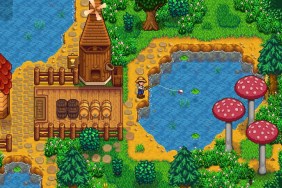O, Destined Warrior, Returneth The Beginning.
Ys Seven is like well-cooked rice, simple and plain but rare enough in occurrence that the firm and supple flavor is worth savoring down to every last morsel. It's neither the most innovative nor the the most captivating action JRPG, but it's readily accessible and the combat is quick enough on the draw to fit the pick-up-and-play mold of the PSP. And if there's anything that the action JRPG genre needs, it's getting back to basics.
[image1]As such, the story returns to the classic but borderline cliché JRPG structure: Island continent of Altago. Silent protagonist with red hair and a swashbuckling desire for adventure. Muscular companion with blue hair who plays the lovable idiot with fists of steel. Five elements. Five tribes. Five additional party characters. Five dragons. Five dragon altars. Fragile flower girl. Even frailer deaf mute. A mysterious girl in a robe. A mysterious guy in black. The aristocracy and the military discriminating against the poor and defenseless. Unexplainable anomalies. World destruction. Chaos. Order. Hope. Despair. Life.
If you've played any semblance of old-school JRPG set in a fantasy world, you won't be surprised at the twists and turns in the story. The only way it could be more cliché is if there was a love interest that is wrapped up in so much emotion that it conquers The End. But for a plot steeped in traditional characters and themes, it's surprisingly brisk and innocuous. Dialogue is delivered well, scenes are never inappropriately melodramatic, and each secondary character has enough humor, personality, and endearing relationships to carry the tension of the story. It isn't groundbreaking drama, nor does it try to be.
Thankfully, Ys Seven soars above most JRPGs where it counts the most: Not the graphics or soundtrack, which are competent and diverse, but the fluid and swift combat that encourages you to adapt quickly. The environments you travel between act as the battlefield, filled with respawning enemies that you can approach and attack at will. Your only form of defense is evasion, effectively promoting tactics that have you dash in and out of enemy attack range, especially against titano-sized baddies and bosses that have a tendency to fire energy attacks in a shmup pattern.
[image2]Switching between members of your three-man party is equally crucial, as different enemy types have different resistances. A fist doesn't do much against a jelly-like opponent, but a slashing sword does. Your basic attack chain also depends on the character – quick and weak, or slow and strong, or average in speed and strength. That alone keeps you thinking on your toes. The only trouble comes when your AI-controlled characters are caught in an enemy attack when you want to switch to them. Though the AI is usually smart enough to evade nearly every attack, it would been better if the AI could be controlled more thoroughly through tactics.
There are many ways to take a monster down. Like Final Fantasy IX, each weapon has a special skill that its wearer can learn, and each character can assign up to four skills. For a specified amount of SP, earned mainly by using charged attacks reminiscent of Mega Man's Mega Buster, a skill can stun opponents quickly, knock them down, or juggle enemies into the air. If that wasn't enough, all characters share an Extra skill bar that builds over time and with each skill use; when full, youcan unleash a godlike special technique that has the strength of more than fifty normal attacks.
Master all of these maneuvers and normal enemies will turn into blobs of coins and materials in no time. Bosses, unless they have attacks with strong area of effects or cause terrible side effects, are generally battles of attrition where you have to stretch out your limited stock of healing items. For those who think this sounds too simple, you can select hard or nightmare difficulty at your own peril.
[image3]Though dungeons are fairly linear, directing you toward any treasures you need to progress with an obvious hand, diligent exploration usually yields enough cash and resources for you to purchase and synthesize most any weapon, armor, or item. It's not until the endgame, when you'll be about level 60, that you may want to grind for extra Soul Stones for each character's ultimate weapon. If you are looking for a specific item or want to complete a quest, it's usually as easy as looking at the journal and transporting to the nearest stone monument.
The only sinful blemish is one scripted boss battle where you're forced to lose. And it really strings you along, too. You are given control, as if you can win, and you can whittle down the boss's health about halfway. But then the boss guards every attack even when the boss is clearly hit. Ugh… All it does is waste your healing items and makes you want to reload the game, restart the battle, and just die. But that's the game's only downfall and it lasts only ten minutes out of the more than 30-hour adventure.
For a title entrenched in the amorphous mutation of JRPGs into turn-based but real-time, single-player but MMORPG confusion, Ys Seven treads the line between classic and cliché with refreshing ease. Despite its occasional potboiler plot twists, it is a reminder that well-executed simplicity is all you need for an addictive title.
-
Swift, fluid action
-
Dynamic change-ups in combat
-
Exploration yields enough gold and materials
-
Competent graphics, music, and level design
-
Classic but cliché story and plot twists
-
One scripted loss











